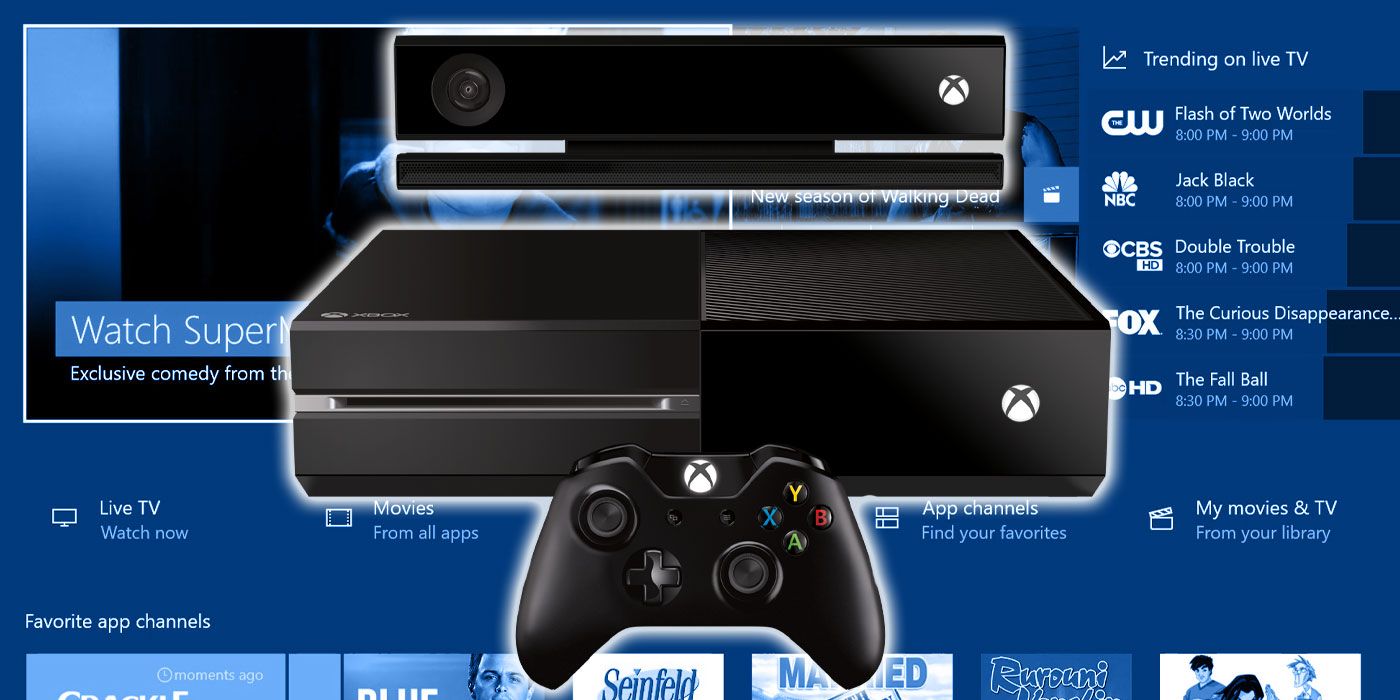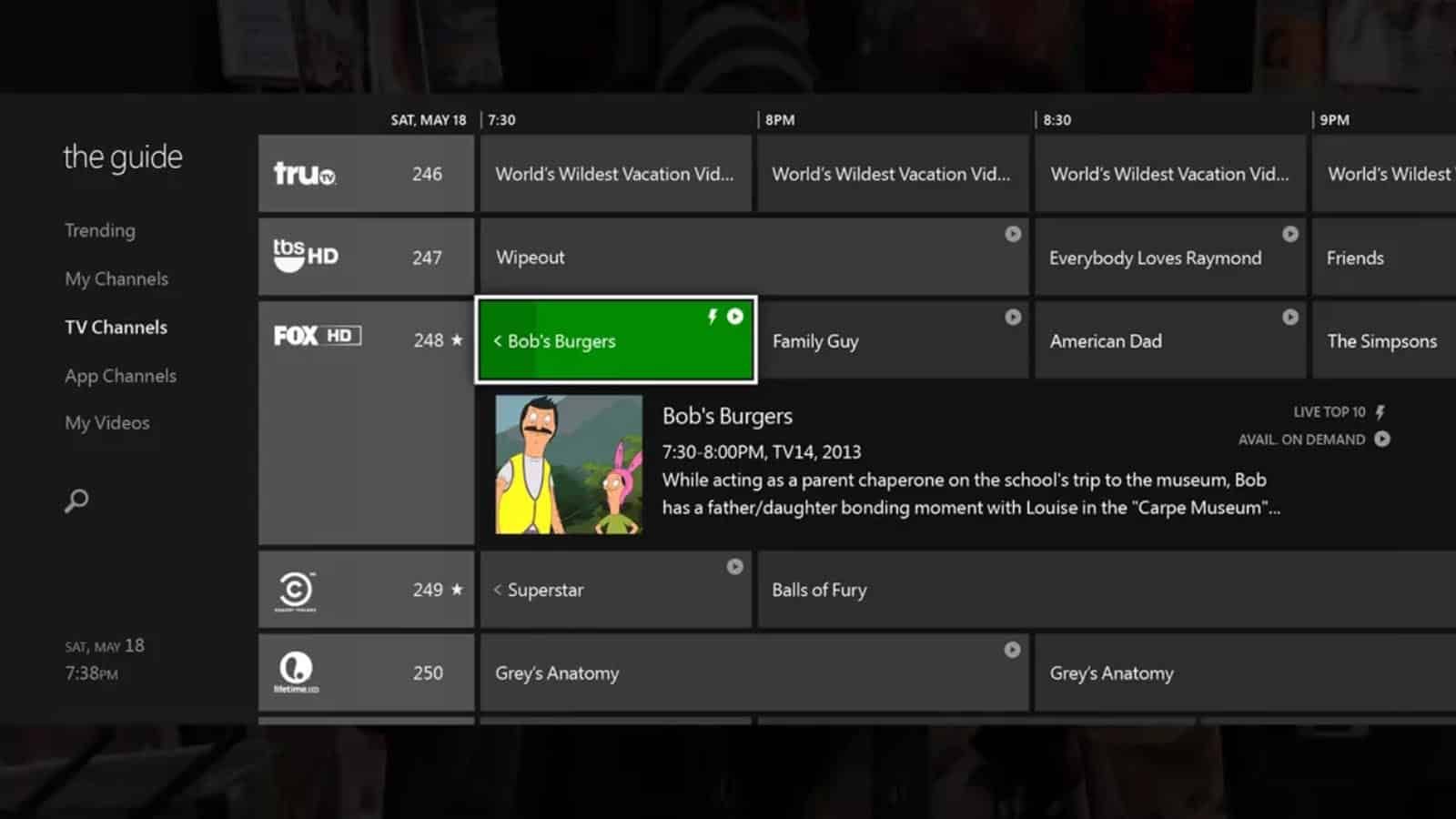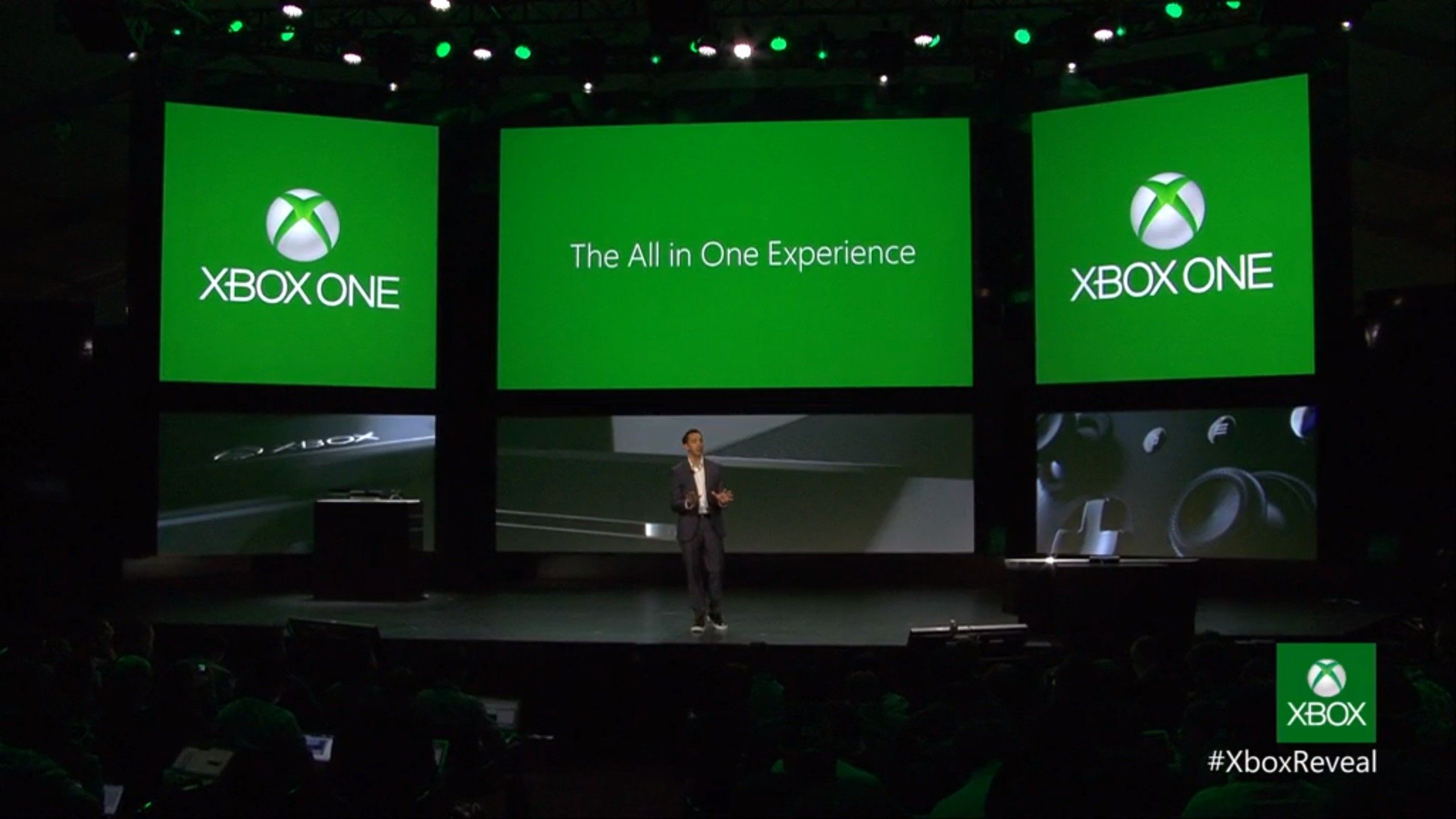
The last remnant of an era for Xbox is being shut down. One of the Xbox One's flagship features, Xbox TV OneGuide Listings, will cease operations in May.
OneGuide being discontinued isn't just a sign that the Xbox One is at the end of its life cycle. It's the last bastion of Microsoft's Microsoft's strategy to take over the living room. The Xbox One made use of an HDMI passthrough to include cable access so gamers could watch their cable boxes from the console. Even better, it offered Xbox owners access to free-to-air TV channels using an additional TV tuner adapter.

The goal was for Xbox One to become its owner's go-to multimedia device. Plugging a cable box directly into the Xbox One would, the theory goes, make live TV just another feature on the Xbox, alongside games and apps like Netflix. That connectivity was the focus of the Xbox One's 2013 unveiling, where Microsoft spent the first 30 minutes of the Xbox One's debut showcase talking up its TV features before ever mentioning games. Don Mattrick, then-president of Microsoft's interactive entertainment business, said that Microsoft was focused on making the One "an entertainment console" rather than a gaming console.
A partnership with the NFL and a Steven Spielberg-produced Halo television series were, understandably, treated as big deals by Microsoft. That said, Microsoft's press conference spotlighted everything from Skype to how voice control would make memorizing TV channels obsolete at the expense of games. The short shrift given to gaming left a bad taste in the mouth of gamers and Microsoft employees. Phil Spencer has said that employees complained to him about the presentation diminishing the work they'd put into the new console by "talking about the product in a way that's not really matching what the soul of an Xbox console is about..."

Microsoft's focus on the Xbox One as a multimedia device didn't endear it to potential customers. It followed on the heels of rumors that the One would be an "always on" console, requiring a persistent internet connection. Gamers feared this would lead to intrusive DRM and the end of used games. Microsoft Studios creative director Adam Orth tweeted that people needed to "#dealwithit" when it came to an "always on" console. That tweet caused a controversy that ultimately saw Orth leave the company. While the One ultimately didn't require an always-online connection, the controversy made sure the console got off on the wrong foot before it was even unveiled. A quickly abandoned DRM scheme further poisoned the well.
The Xbox One never recovered from its early missteps and lagged behind the PlayStation 4 and the Switch in sales for its run. Microsoft's multimedia ambitions went the way of the Kinect and were abandoned. Microsoft pivoted its strategy to Play Anywhere, which connected its exclusives on the One and PC. It's a practice they're continuing with the launch of new next-gen consoles, the Xbox One Series S and X. They've invested heavily in Microsoft Game Pass and have led the way on backwards compatibility.
The new Xbox consoles are on firmer footing than their predecessor, and Microsoft learned from its mistakes. Their acquisition of Bethesda Softworks shows they're focused on games in a significant way, one that should help them be more competitive with Sony and Nintendo this generation.
0 Comments